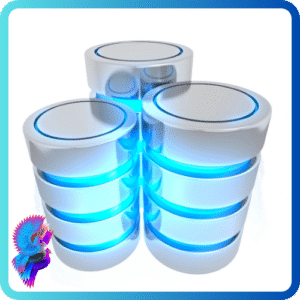Advertisements
What Is a Database
In today’s digital age, data is the driving force behind businesses, organizations, and even personal lives.
Managing and organizing this vast amount of information efficiently is crucial for smooth operations.
This is where databases come into play.
A database is a structured collection of data that allows for efficient storage, retrieval, and manipulation of information.
At its core, a database consists of tables that hold related data. These tables are interconnected through relationships, forming a logical structure known as a schema.
The schema defines the organization and structure of the data within the database.
Databases offer several benefits over traditional file-based systems. They provide a centralized repository for storing data, ensuring data integrity and consistency.
With databases, multiple users can access and manipulate the same data simultaneously without conflicts or inconsistencies.

The uses of databases are diverse and span various industries
-
-
Business Applications:
Databases are used extensively in business applications to store customer information, sales records, inventory details, financial transactions, etc.
They enable businesses to analyze their operations effectively and make informed decisions based on accurate data.
-
-
-
E-commerce:
Online shopping platforms heavily rely on databases to store product catalogs, customer profiles, order histories, payment details, and shipping information.
Databases ensure seamless transactions by managing inventory levels in real-time and processing orders efficiently.
-
-
-
Healthcare Systems:
In healthcare settings, databases play a vital role in managing patient records such as medical history, diagnoses, prescriptions, lab results, and appointments.
They enable healthcare providers to access critical patient information quickly while maintaining privacy and security.
-
-
-
Education Management:
Educational institutions utilize databases to store student records including enrollment details, grades, attendance records, course schedules, and academic progress. Databases streamline administrative tasks like generating report cards or tracking student performance.
-
-
-
Social Media Platforms:
Social media platforms handle vast amounts of user-generated content such as posts, comments, photos/videos shared, and user profiles.
Databases ensure quick retrieval of this data, facilitate personalized recommendations and support targeted advertising.
-
-
-
Government Systems:
Governments employ databases to manage citizen records, tax information, land ownership details, and criminal records.
Databases enable efficient public service delivery by providing accurate and up-to-date information.
-
-
-
Research and Scientific Data:
Databases are crucial in scientific research for storing experimental data, research findings, and scholarly articles.
They facilitate collaboration among researchers by providing a centralized platform for sharing and accessing scientific knowledge.
-
-
-
Transportation and Logistics:
Databases are used in transportation and logistics to track shipments, manage routes, monitor vehicle maintenance schedules, and optimize supply chain operations.
They ensure the timely delivery of goods while minimizing costs.
-
In conclusion,
databases are the backbone of modern information management systems.
Their ability to store vast amounts of data securely while allowing efficient retrieval and manipulation has revolutionized various industries.
From business applications to healthcare systems and social media platforms to government systems, databases play a pivotal role in enhancing efficiency, decision-making processes, and overall productivity across diverse sectors.
Advertisements






















